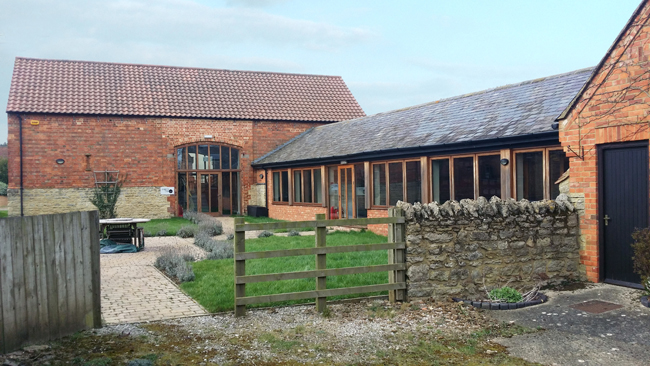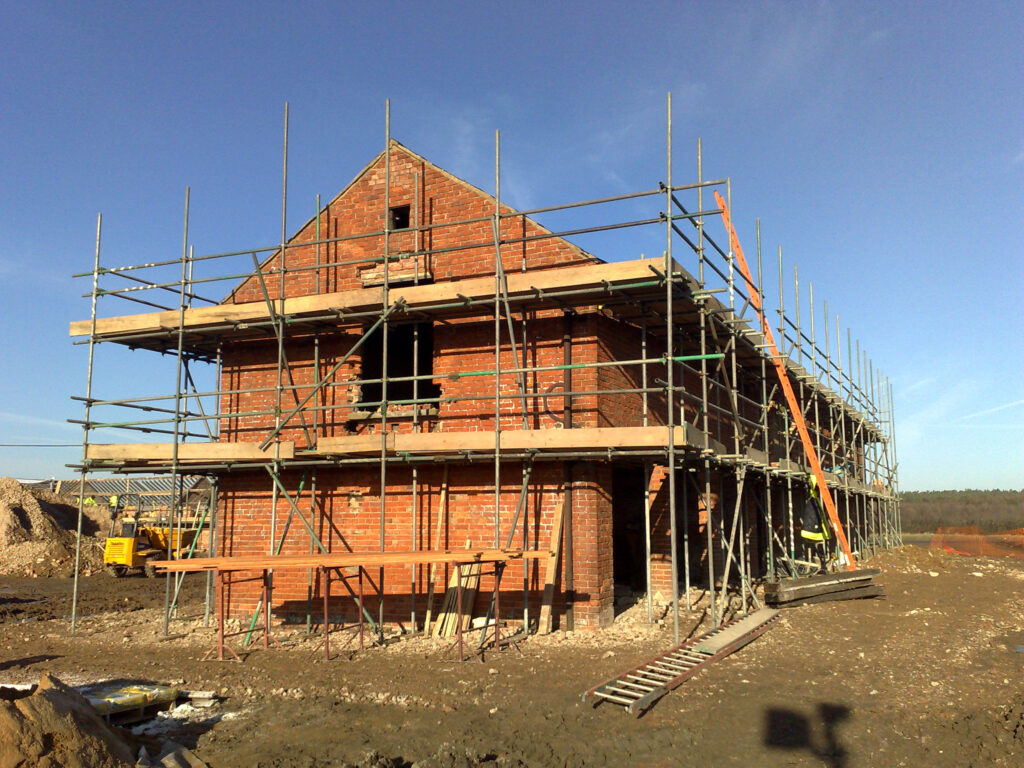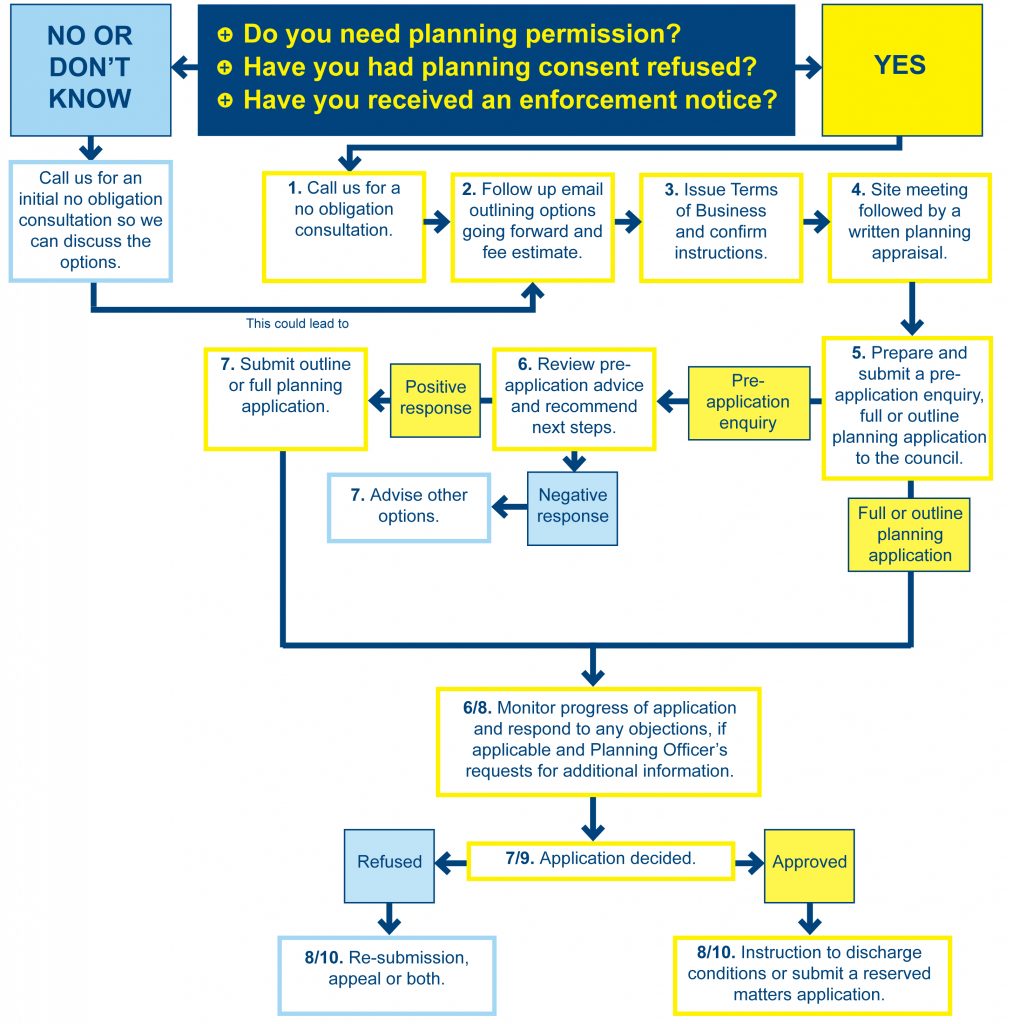Tag: planning news
Land and Property Professionals
We sell, rent, manage, survey, plan and advise...what can we do for you?
We sell, rent, manage, survey, plan and advise...what can we do for you?

Since joining Robinson & Hall at the beginning of February, it has been an enjoyable transition back into the planning and development consultancy world, having spent nearly 2.5 years working for a housebuilder. Prior to this, I was at Bletsoes for over 7 years in the Planning & Development team, so I am very familiar with this role and look forward to getting back to helping landowners find added value across their portfolios.
Government Housing Targets
With the UK constantly falling short of its annual targets for homes, and 2023/2024 being the lowest level in over a decade, the new Government has proposed to reintroduce mandatory housing targets and has aimed to deliver 1.5 million homes over the next 5 years. One of the big changes is the recently revised National Planning Policy Framework (NPPF) which includes a new standard methodology for calculating housing need. This has led to local planning authorities being required to deliver 370,000 homes per annum, as opposed to the previous target of 300,000, under the current method. Due to this, councils are having to plan for sufficient housing and be able to demonstrate a 5-year land supply.

Permitted Development Rights
Recent changes to the Permitted Development Rights have opened the door for landowners to consider making changes within their farm holdings. With farmers always looking at other means of generating income away from farming itself, permitted development is seen as a fantastic avenue to explore. Many of my meetings consist of discussions around Class Q, Class R or Class A, and all three have seen changes recently.
Class Q
First introduced in 2014, Class Q is a valuable tool for landowners to convert old barns, sheds and grain stores without needing to apply for full planning permission. Recent changes have included the inclusion of agricultural buildings which are not part of the established agricultural unit. This will give farmers and landowners the opportunity to convert outlying buildings, which has previously been against the rules. Historically, buildings had to be solely used for agricultural use, however this has been removed in instances where that building is part of an established agricultural unit.
Other changes have included the maximum number of dwellings increasing to 10, with a total floor area of 1,000 m2 (previously the number of dwellings was limited to 5 with a maximum floor space of 865 m2).
Frustratingly, the maximum floor area for a single property has been reduced from 465 m2 to 150 m2.

Class R
Class R allows landowners to convert agricultural buildings to a range of commercial uses, along with diversification to other uses such as sport and recreational. The total floor area allowance has increased from 500 m2 to 1,000 m2.
Class A
For farms of over 5 hectares, the maximum size the barn can be is 1,500 m2, and for holdings less than 5 hectares, the total size limit has increased to 1,250 m2.

Many of Robinson & Hall’s client base are situated, fortunately, within the area known as the Oxford to Cambridge Arc. This is a globally significant area between Oxford, Milton Keynes and Cambridge which supports over 2 million jobs and adds £110 billion to the economy every year. It is seen as one of the fastest growing economies in England and there is a recognition by the Government that it is an area of opportunity to build a better economic, social and environmental future for the area. There is a real push over the next decade to transform this area, with initiatives such as the East West Rail being promoted to ensure better connectivity between Cambridge and Oxford, not to mention the potential of Universal Studios UK coming to Bedford, which would create thousands of jobs and put Bedford truly on the map! It is still some way off, with the theme park not expected to open until 2031, however it could be transformational for Bedford Borough.
As you can tell from the above, there is always lots going on and it is difficult to keep track. If you have a planning query or are curious as to whether your land has development potential, please do get in touch. It would be good to meet, and you never know, you might be sitting on a goldmine.
Please contact Tristan for more information or to find out how he can help you.

Planning permission is required if you want to change the use of a building or piece of land, build something, or make a major change to a building such as extending it. The risk of not obtaining the appropriate planning permission is that yourself or your business could be served with an enforcement notice.
There are occasions when planning permission is not required and this is when permitted development rights apply. There are specific permitted development rights that apply to agricultural holdings and buildings. If your farm is 5 hectares or more then you have permitted development rights to erect a farm building (up to 1,000 m2) or carry out excavations and engineering operations needed for agricultural purposes. Permitted development rights also enable the change of use of certain agricultural buildings to dwellings, commercial space or schools.
The first stage of any potential development is to understand whether:
a) it counts as permitted development; and
b) it requires full planning permission.
Often, projects which are permitted development still require an application process known as the ‘prior approval’ which assesses the proposals to ensure they comply with the permitted development regulations.
It is helpful to employ a qualified planner to help you understand what type of application is required and what information the Local Planning Authority will require to determine the application. Robinson & Hall has vast experience on a range of application types and is able to assist from the initial pre-application stages, preparation and submission of a planning application through to a decision and even to appeal.
Robinson & Hall’s Top Tips for a Successful Planning Application:

Common Pitfalls to Avoid when Applying for Planning Permission:

Have You Undertaken Development Without Planning Permission?
If you have undertaken development without planning permission, you could be at risk from enforcement action such as the receipt of an enforcement notice. It is illegal to ignore an enforcement notice and to do so could result in a stop notice being served, a large fine being issued or even potential prison time. There are only 28 days to appeal an enforcement notice and so if you are served with one, you should seek professional planning advice immediately.
Planning can be confusing and mistakes can be made. Breaches of planning can be regularised in two ways:
We have been involved with a variety of cases whereby planning was mistakenly not obtained, or enforcement notices have been served. We are well experienced in reviewing sites and cases on an individual basis and advising the best course of action.
Had Planning Refused? How We Can Help:
If you have submitted a planning application that has been refused by the Local Planning Authority, there are options for you to still proceed.
Appeal – Applicants can appeal planning authority decisions up to six months after the issuing of a decision notice. We offer a full appeal service, irrespective if of whether we were involved in the initial planning application or not. We are able to advise on all types of appeals and have been very successful in overturning refused planning applications through the appeals process with the Planning Inspectorate.
Resubmission – We also have experience in assisting where applications have been refused or withdrawn. This could have been through a misunderstanding with the Local Planning Authority or because of missing information if the application was submitted without specialist planning advice. We can review previously submitted applications and assess what would be required at a re-submission stage to ensure a successful outcome. We work closely with third-party consultants and have good relationships with the Local Planning Authorities.

Other Planning News
For more information please contact Abel Bunu, Principal Planner on 01234 362891 or email ab@robinsonandhall.co.uk

There is currently a consultation underway on proposed revisions to the National Planning Policy Framework (NPPF) that have been put forward by the Department for Levelling Up, Housing and Communities. The consultation began on 22nd December 2022 and will continue to run until 2nd March 2023.
Key revisions proposed to the NPPF are as follows:
It is understood that the Government will respond to the consultation immediately in the spring and the NPPF revisions will be published as part of this exercise.
For more information, please contact Shannon Fuller, Planner at Robinson & Hall, on 01234 362913 or email sef@robinsonandhall.co.uk

Following the merger of South Buckinghamshire, Chiltern, Wycombe and Aylesbury Vale Councils, Buckinghamshire Council are currently preparing a new Local Plan that will cover all these areas collectively.
The Plan seeks to deliver sustainable development through better quality places, a more comprehensive and predictable delivery of infrastructure and by meeting the social, economic and environmental needs of Buckinghamshire. So far the Council has undertaken two ‘call for brownfield sites’ consultations but they have now commenced a ‘wider call for sites’ exercise to include greenfield sites.
The Council has started a public consultation seeking sites that can accommodate five or more new dwellings or economic development on sites of 0.25 hectares (or 500 m² floor space) or more and this consultation is running until 11th September 2022.
If you have land which you consider may have future development potential and would be interested in responding to the consultation, we would be pleased to hear from you. Please contact Shannon Fuller.